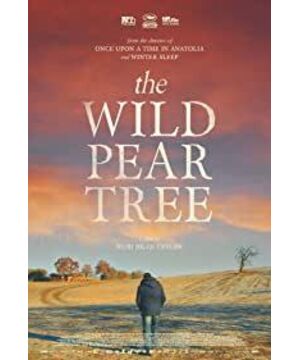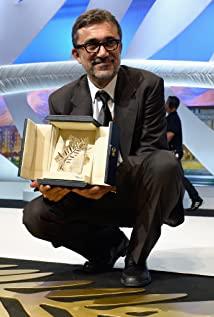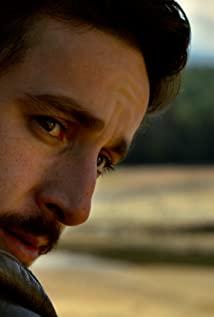After winning the Jury Prize with "Once Upon a Time in Asia Minor" in 2011 and the Palme d’Or in 2014 with "Hibernation", Turkish film master Nuri Big Ceylon returned to Cannes with his new work "Wild Pear Tree" competition. Although it did not qualify for the award in the end, it has become my favorite Ceylon. As the last main competition film to be screened, "Wild Pear Tree" is no less inferior to the previous films. It showed the grandeur of the finale at the 71st Cannes Film Festival, which was frequently hit, and won unanimous praise from the media. .
The British [Guardian] gave full marks, and [Variety Show] said: "This is another Ceylon with rich pictures and an astonishing language density." The author believes that "Ye Pear" "The Tree" is warm and moving, and compared to "Hibernation", Ceylon's new attempt in "The Wild Pear Tree" brings a whole new look and feel to the movie, and it is an undoubtedly masterpiece.
The main line of the story of "Wild Pear Tree" is: Sinan, an ambitious college graduate who is about to become a writer, returns to his hometown. He thinks about whether to take the next exam to become a teacher like a father or go to military service to escape his troubled hometown. . His father Idris was heavily in debt and obsessed with gambling, but tried to hide his vices. And his mother, Asuman, used endless TV shows to anaesthetize herself. Sinan tried every means to raise funds in order to publish his novel. However, his friends and deceased in his hometown, as well as the resistance encountered in the fundraising process, made him deeply disappointed in the future, and his relationship with his father has become more and more serious. Get nervous.
In "Wild Pear Tree", Ceylon portrays the plight of young people in the countryside. Sinan’s hometown is a village near the port of Canakkale. The village has become a tourist destination due to its proximity to the Battlefield of Gallipoli in the First World War and the ancient city of Troy. The Trojan horse that Sinan got in the film was created for the filming of the movie "Troy". In this country far away from the city, in a place full of wild pear trees, people are "discomfort, lonely, and distorted" just like Sinan's father said that they are "discomfort, loneliness, and distortion." The countryside has broken the young people's flying wings, and the once lofty dream finally stagnated here. Sinan kept saying that he would go to the big city and not rot here. He was talking about the social reality of Turkey. Of Turkey's 80 million people, 20 million live in Istanbul, and more and more young people are going to big cities to find a way out. My hometown eventually becomes the wild pear tree in my dream, which is beyond sight. That is the nostalgia and predicament of a generation of Turkey.
Under the predicament, Sinan tried to find a way out by raising funds and publishing books. After asking for sponsorship with the mayor and the sand boss, Sinan saw the mayor’s fake democracy, real evasive corruption, and the sand boss’ fake intellectuals, real opportunistic hypocrisy. These two figures appropriately increased Ceylon's political demands and satirized the disregard of knowledge and culture behind the policy of foolish people under the rule of the Turkish "dictator" Erdogan.
Ceylon is a master of language. In "Hibernation", his Chekov and Dostoyevsky style of writing makes the work appear many wonderful dialogues, two dialogues between the male protagonist and his sister and his lover. The time is about half an hour. In this "Wild Pear Tree" Ceylon still uses this narrative style. The two dialogues between the actor Sinan and the famous writer and the two imams basically take up an hour. In the dialogue, Ceylon used language art to let Sinan and famous writers discuss the purpose and utilitarianism of writing. Constant confrontation and confrontation escalated the contradiction between the characters. Sinan and the two imams talked about religion and utilitarianism. The discussion of beliefs gave the movie extremely high practical significance. For example, the discussion between Sinan and the author about the author's autobiography in the book, the two insisted on their own words, and the sharp question and answer continued to intensify the emotions between the two, as if it were a dialogue in a literary work; while in Sinan and Imam discussed When the Islamic "Quran" should be quoted and practiced literally and whether it would help prevent crime, one of the imams said that "the crime rate in atheist countries is very low, but the suicide rate is very high." Each has its own point of view citation, as if it is a multi-point argument in an academic paper. This kind of language density is indeed difficult to digest, so it is understandable why some audiences criticized "Wild Pear Tree" as a movie, because it cannot be read and considered repeatedly like the text, the one-time audio-visual effect is greatly reduced, and may exceed the load it should be. value.
However, the author does not agree with the reason for this criticism. Since the language density of "Hibernation" can be recognized, why can't "Wild Pear Tree"? Moreover, "Wild Pear Tree" has a completely new attempt compared with "Hibernation". Four years later, Ceylon did not repeat the old way of "Hibernation", but introduced other elements in the film at the right time. During the period of "Hibernation" he said, "I don't like comedy, I don't like to laugh", but this "Wild Pear Tree" not only has humor: the stone is pushed on the Sinan Bridge; there is more intense verbal conflict: Sinan and the writer On the bridge due to the vanity and hypocritical discussion of literary creation, the writer broke out; there was a switch to join the dream: the bridge section of the Trojan horse, the ant on the face of the baby, the hang in the well; and the "A Parting" and "Burning" The truth is hard to know: Did the father take away the 300 lire? Under these new attempts, Ceylon's language is no longer just Chekov or Dostoyevsky, but is in its own right, and it is very diverse.
The excellence of the film language is obviously not only the skill of Ceylon. Ceylon's scheduling and photography still reflect the master style in "Wild Pear Tree". Not to mention that the scenery of the countryside is fully exhibited by Ceylon in widescreen format. In the shooting of indoor and outdoor moving scenes, Ceylon's lens also runs like clouds and water, switching smartly and freely. In the shooting of people and expressions, Ceylon's capture is also extremely accurate. There are a few particularly amazing scenes of photography: Sinan and his girlfriend under a tree, the scene where the sun shines on the face through the leaves; the emotion on the face of the writer who screams and yells at Sinan; Sinan and two imams The camera while walking while discussing; the ants on the baby's face and the jingle making noises. Ceylon's rich visual language can also shut up audiences who criticize it for not being visualized enough.
If "Once Upon a Time in Asia Minor" and "Hibernation" are narratives that serve the mood of the movie, this "Wild Pear Tree" puts narrative in the first place. Ceylon finally highlighted his narrative ability in this movie, but in fact the whole movie is about Sinan's father-son relationship. At the beginning of the movie, the audience easily brought into the mood of the male protagonist Sinan: he hated his father’s gambling, asked for change in front of the bus, and disputes with others in the lottery hall were all Ceylon’s painstaking efforts to create contrast. . Sinan's mood went from bad to worse after his fundraising and book contributions repeatedly failed and subsequent failures in the exams, and finally fell to a freezing point due to his father's debt and gambling problems. When the contradictions escalated in the progress of the story and Sinan's choice was finally a foregone conclusion, his return brought the emotional climax of the film. After the clues were revealed little by little, the paternal love became a footnote in the book, so inconspicuous, but everywhere. If you choose to ignore it at this moment, I'm afraid it will end up hanging in the well.
Hometown is where there are relatives. The homesickness in "Wild Pear Tree" not only refers to the village where Sinan was born, but also the paternal love that Sinan longs for. It can be said that this father-son relationship is the most beautiful part of "Wild Pear Tree". In order to make the separation and reunification of this father-son relationship become powerful, Ceylon used the most moving way to tell the meaning of family affection. This may be the best movie about father and son in Turkish movies, except for "My Father, My Son".
The dog hunting notice, the news in the newspaper, the old well. The father in Ceylon's works is actually the nostalgia in each of us. That is the lie we lie in order to realize our selfish dream, that is the failure of our youth and frivolous rampage, and that is the awakening of the dream that we understand when we grow older. Perhaps we all have such a wild pear tree in our hometown.
First published in: Watching a movie and seeing a dead official account
View more about The Wild Pear Tree reviews











